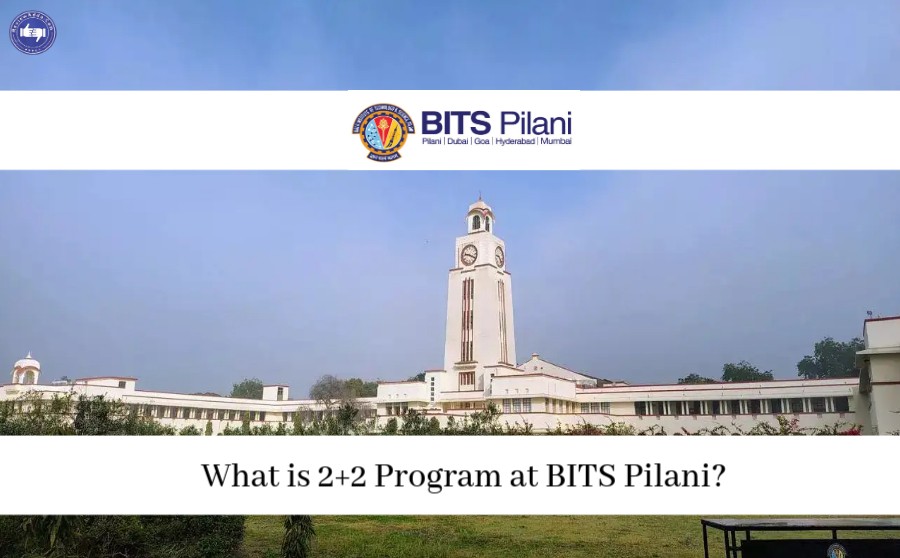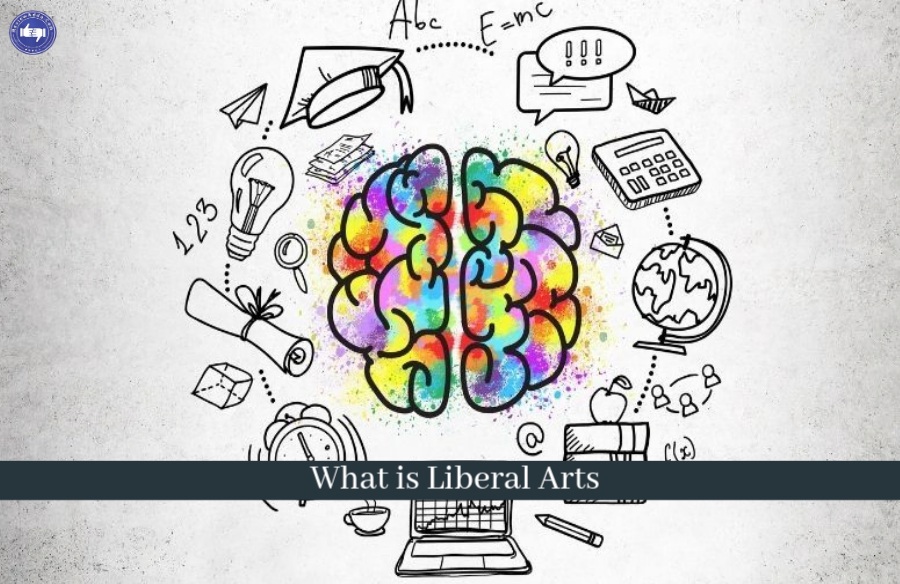Topic We Cover: Career vs Job
1. Career vs Job: Definition
2. Career vs Job: An Analogy
3. Career vs Job: History
4. Career vs Job: Difference in Attitude
5. Career vs Job: Monetary aspects
6. Career vs Job: Level of commitment
7. Career vs Job: Is there a right or wrong approach
8. Career vs Job: A Summary
9. The Tri-Junction of Talent, Passion and Marketability
In professional life, attitude determines altitude.
The mistake working people often make is considering the general work-force of any given company being a monolith. This simply implies they believe their goals match the goals of every colleague they have.
For instance, an employee only concerned about getting the highest salary he can get from a given company generally believes everyone else in the workforce wants the same. The same is true for employees who value their role in the company much more than the money they tend to make, who believe everyone else in the company ought to have the same mentality.

Career and job have always represented two differing schools of thought in professional life
This gap is all too common in an office-environment, often termed as an attitude divide between employees of a company.
Career and job in terms of pure semantics carry two very distinct meaning, albeit they come from similar professional circles. Their difference in a way underlines the underlying point of the forthcoming discussion to determine which path is better, career or job?
Click here to know the Best fields of study
Click here for Top 100 colleges in India
Click here for NEET 2018 application form details
Career vs Job: Definition
A career is:
- The representation of an employee’s work across the time period during which he/she was part of a profession.
- A vestige of a person’s progress in a given field in which he is professionally educated or trained.
Both these definitions suggest a clear undertone of longevity and purpose. Another key aspect of a career is the necessity of a person to be trained in a particular line of work. Since the whole point of a career is thinking in the long-term, some kind of formal training or education is necessary to achieve the target of a long and stable career.
On the other hand, a job is:
- A direct exchange between an employer and an employee based on the services provided by the latter in exchange for a pre-determined amount of money.
- A service provided in exchange for monetary benefits likely to be a short-term deal.

While career ingratiates the entire lifespan of professional life, a job usually refers to a particular activity
Different jobs are often considered as being a part of a long career on a whole. While this does seem appropriate in terms of looking at a time frame, a job and a career are two very different qualitative aspects of professional life.
A job-oriented professional is concerned only with earning as much as he/she can without any motivation to help the company succeed. On the other side, a career-oriented person strives to improve his/her own experiences and performance with an eye on building a steady foundation for an illustrious career.
Career vs Job: An Analogy
Consider the case of a Rajat Gupta, an engineering graduate from a good engineering college in Noida.
Rajat was recruited by an IT company during his college’s campus recruitment drive. Like most IT Placements, his joining letter is expected to arrive five to six months after graduation. Sitting idle for six months didn’t seem an appealing prospect to Rajat.
To gain some real world experience and earn some money on the side, Rajat decided to work as a part-time customer service rep at a local call centre. The experience made him earn his spurs as a working professional.
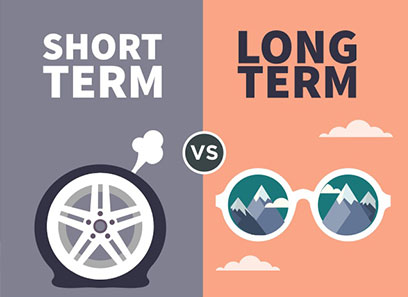
Careers are a long term prospect while jobs are a short term mission
After six months, his joining letter came from the IT company which recruited him earlier. Rajat left the company with a good idea about how things worked in an office environment, something he hadn’t learned at college.
In this scenario, Rajat’s time at the call centre can be considered as a job. He didn’t have any ambition to reach a higher position there. His sole aim was to gain experience and make some money. Rajat considers his future as an IT professional. The experience he gains from working at the call centre can be considered a valuable lesson, but not part of a career milestone.
This is the primary Difference between job and career. Taking up a profession with a myopic view of earning money in a short period of time is essentially what a job is. Many content writers take up jobs in internet companies with a main agenda of warning money in the short term. Their long term goal is often to become a published writer or journalist. The latter is a long term career plan while the former is an intermediary way to earn a living.
Career vs Job: History
As mentioned before, the difference in career and job usually comes down to a variance in attitude.
A job-oriented professional usually has no ambition to climb a higher rung on the overall scheme of things. The main blueprint of a job can be associated with permanent positions professionals used to take up before the advent of technology. From factory workers to government employees and private sector workers, the main focus was to remain in a job for an entire lifetime and enjoy pension after retirement.
This was also the case in the US where the promise of 30 years of work followed by lifetime pension was propounded by many manufacturing companies in the automobile sector and other derivates.
However, the changing economy slowly eroded that promise. With increasing costs, companies could no longer hire a large number of workers for a long period and also provide pension to retired employees. This became the detriment of the job-oriented mindset in America and the rest of the world due to its high stake in the world economy.
The change in status quo meant education and skill development became the driving force for potential employment. The advent of blue chip companies made computer adeptness a key component of the education system.
Consider India for instance. The key recruiter before the 1990s was the government. From college-educated professionals to high school graduates, everyone wanted a job in a government office. A key reason behind this was the security it provided. The private sector was a minority player in terms of mass employment. Only a few mega conglomerates were trusted by the common public for long term employment.
Liberalization in 1991 changed India forever. The private sector suddenly became the major player as the government took a back seat. To gain popularity amongst job aspirants, private companies offered much higher salaries with a promise of increment in a fixed period of time.
Thus, from valuing job security, the Indian workforce started valuing hard-work and dedication more. This was the first time career-oriented thinking was gripping a major portion of the Indian society. Instead of securing their futures through job security, people focused more on career growth which would eventually lead to much more money.
 Get Updated Review ( Voice Based Alumni Feeback)
Get Updated Review ( Voice Based Alumni Feeback)
-
 Check Review (Alumni Feedback) - Lovely Professional University - [LPU] – Click Here
Check Review (Alumni Feedback) - Lovely Professional University - [LPU] – Click Here -
 Check Review (Alumni Feedback) - Amity University – Click Here
Check Review (Alumni Feedback) - Amity University – Click Here -
 Check Review (Alumni Feedback) - DIT University Dehradoon – Click Here
Check Review (Alumni Feedback) - DIT University Dehradoon – Click Here -
 Check Review (Alumni Feedback) - Chitkara University – Click Here
Check Review (Alumni Feedback) - Chitkara University – Click Here -
 Check Review (Alumni Feedback) - Ansal University – Click Here
Check Review (Alumni Feedback) - Ansal University – Click Here
The same attitude still holds amongst a majority of the workforce on the country.
Career vs Job: Difference in Attitude
Employees are now expected to work hard and deliver not just for the promise of remuneration, but also to aid the company in achieving more which would eventually boost their career as well.
Kapil Arora, the regional manager of a Medium Scale IT Services Provider explains the exact expectations of modern recruiters. ‘We don’t want people who keep watching the clock. I have rejected many candidates who were simply looking for a job change to earn some extra bucks every month. For sure, money is the end game and the ultimate motivator, but we need ambitious people’
‘Many employees at our company show immaculate dedication to take the organization to the next level. I’m ready to listen to whatever salary demands they might have. Essentially, if you work hard and show ambition, money will eventually come your way’
This new school of professional thought is the preamble of many career-oriented professionals. The desire to constantly learn and improve to move higher in terms of position and status in a given line of work is the essence of a career-oriented mindset.
A career-centric mindset involves planning and taking up certain opportunities which aid in the overall growth of a given professional’s career. Each opportunity is considered a chance to build upon the skills a professional already has, which eventually leads to a better position in terms of job growth and salary earned.
On the flip-side, a job oriented person could remain in the same job for five years win the same position with the same skill set. Unlike a career which is a constant resume building exercise, a job is unlikely to have a big impact on your overall profile.
Career vs Job: Monetary aspects
How does money affect the discussion between career and job?
Jobs are considered a minimal effort proposition with an easy paycheck at the end of the month. The main aim of the employee in such a case is to complete the given tasks in the pre-determined deadline to avoid annoying a superior.
There are provisions in every company for job-oriented professionals to get increments in regular time periods. However, since the level of performance simply doesn’t merit a huge increase, the scale of the increment is usually small.
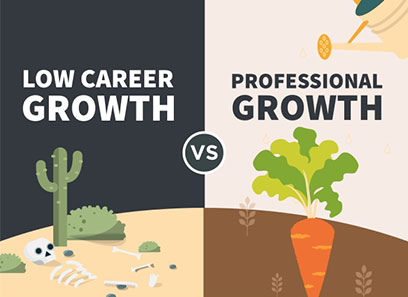
Professional growth is minimal in a job-based approach and robust in career-oriented course
Careers are however a much more high stakes proposition. Besides getting a paycheck, a career-centric individual works extremely hard to learn new skills, make important connections and gain crucial experience.
Unlike a job, a career requires a professional to invest some amount of emotional energy. Only pure ambition to springboard a career into an upward trajectory, and a career requires nothing less.
In terms of pure monetary benefits, a successful career oriented person always ends up earning more than a job-centered professional. However, being career-oriented means taking risks. These risks may be related to changing jobs or even pursuing a startup.
Jeff Bezos left a well paying job at D.E Shaw on Wall Street to drive across the breath of America to Seattle and open his own company, Amazon. Considering his example his both inspiring and dangerous, but one can clearly see the need to take a risk at some point of time if a professional is truly focused on his/her career.
Career vs Job: Level of commitment?
People with a ‘job’ approach are likely to be less committed to their profession than career minded professionals. This is evident from the basic difference between a job and a career.
A salaried job-oriented person’s commitment lies in only one thing: money. If another company offers such an individual a higher package to essentially do the same job, he/she would by definition switch jobs.
On the other hand, a career-minded individual would only consider a job change if it fulfills a larger career goal. Money would not be the only factor to lure such a professional to another job. Factors such as job description, designation, job profile and growth opportunities would also play a crucial part in the decision.
Thus, while both professionals are self-serving inherently, a career-oriented individual is likely to be more committed than a job-oriented person.
Career vs Job: Is there a right or wrong approach?
Imagine a person working the evening shift at a convenience store. Let us call him person A. Person A is studying for an exam to be held next year. To cover for his basic expenses, he works at the convenience store. He doesn’t make any effort to please his manager and gain uniquely positive customer feedback. As Person A’s shift nears its end at 11 in the night, he starts looking at the clock counting down the final minutes. Person A does his job well, but doesn’t show ambition.
In the same store, there is another Person B who works the morning shift. Unlike his colleague from the evening shift, Person B is very happy to work at the store. He is not studying for any exam and is extremely dedicated towards his work. Most customers coming in the morning find his attitude very positive and appealing which is a key reason why they don’t go to other stores. He even works the evening shift along with Person A at times if things get a little hairy.
Person B is very motivated about his job and wishes to rise from his current position. He plans to become the manager of the store. Down the road, he even has a plan of owning his retail line of convenience stores.
Both cases hold equal validity. Person A is entitled to have a job-oriented approach towards working at the store because he has plans to pursue a career in another field. Person B has chosen to make a career out of his present career itself, which he is free and entitled to do.
As explained, there is nothing wrong in being job-oriented towards a profession. Valuing the paycheck above all else doesn’t have any drawbacks. It depends entirely on the recruiter whether he/she deems the skills of the employee valuable enough.
In conclusion, there isn’t a right or wrong as far as the choice between career and job is concerned.
Career vs Job: A Summary
Having discussed all the degrees of separation between career and job, we finally conclude our study with a comprehensive tabular analysis summarizing the points made earlier.
|
Factor |
Career |
Job |
|
Definition |
It is a journey in search of professional fulfillment in a particular line of work |
It is a service performed by an individual in exchange of payment. Main motive of any job oriented person is to make money |
|
Length |
Spans the entire professional life of a given individual |
Time is pre-determined between employer and employee through written contract or verbal agreement in small-scale enterprises |
|
Vision |
Far-sighted vision is necessary to plan a successful career |
Job-oriented people operate on a short-sighted vision as they hump on any opportunity to increase their paycheck |
|
Income |
Income can be slow to begin with, but by sticking to a set plan, income does grow exponentially |
Income is steady and incremental, but exponential rise is nearly impossible |
|
Education |
Some kind of formal education necessary to build upon |
Depends typically on the service to be provided. May or may not be required |
|
Stability |
More likely to take risks to take the next defining step on a path to a successful career |
Very stable as job-oriented employee ideally value job security above all else |
The Tri-Junction of Talent, Passion and Marketability
Consider the Venn diagram above.
The three major pillars of skill development in the modern world, talent, passion and marketability; have been depicted remarkably in the figure. This is where we can also understand the fundamental difference between a job and a career.
We shall discuss each of the three factors before discussing the intersecting areas in the diagram separately.
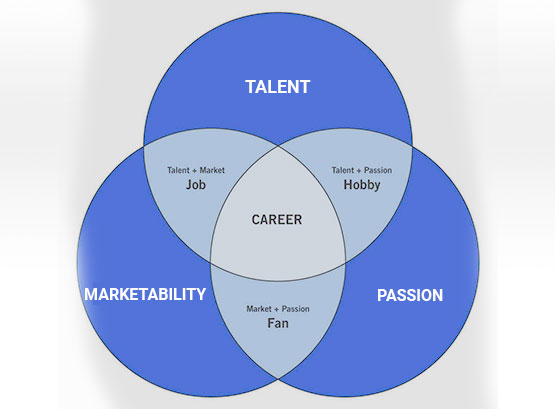
The tri-junction of talent, marketability and passion throws up some interesting scenarios
- Talent
To put it quite simply, talent is something you’re good at.
A given individual can be talented in a number of different fields. The important factor to note here is the level of talent an individual might have. A child might be talented enough to be the best cricketer in his neighborhood. This however doesn’t mean the child is at par with international cricketers. To reach that level, the child will have to develop his talent.
This is an important point to note regarding talent. Without developing a talent through constant practice and hard-word, any amount of talent is as wasteful as a rusted sword permanently placed in a scabbard.
- Marketability
Marketability is essentially a symbol of the demand of a particular product or service.
Whether a product will attract certain sections of the society or not is determined by its marketability. A Class XII Physics textbook is marketable only to science student studying in Class XII. Selling the textbook to a history student is an exercise in futility.
Similarly, marketing the Harry Potter book series is a much easier endeavor due to its widespread appeal. Readers from a variety of age groups have found the series interesting, so it essentially is a very marketable product.
- Passion
To many passionate people, passion has become a very low-stakes label. The overuse of the word often undermines its true significance.
Passion has many meanings, but in this context it refers to an endless ravine of enthusiasm. Unlike the previously mentioned factors which can change over time, a person can never truly give up or lose his/her passion.
Unlike many things in life, passion is not dictated by money, markets, skills or attributes. It is an unexplainable dedication towards any particular field.
People can change their name, religion, identity, and interests, but they can never change their passion. In a world where identity has become a reason for endless controversy, a person’s passion defines who his/her character.
Having discussed each of the three factors individually, we will now discuss instances when each of these factors overlap.
- Talent + Marketability = Job
The first instance can be termed ‘plain and simple’ to say the least. If somebody is talented in a certain line of work and if such a talent has marketable value, the scenario leads to job placement.
These factors have to work in conjunction to lead to optimal results. This has been explained below
- Low Talent + Low Marketability = Low Paying Job
- Low Talent + High Marketability = Medium Paying Job
- High Talent + Low Marketability = Medium Paying Job
- High Talent + High Marketability = High Paying Job
The above assumptions are generic in nature and should not be conflated with pure facts.
A highly marketable job coupled with a high level of talent in an individual often leads to the best possible job. While marketability is something out of control for a given individual, talent development is something every job applicant can control.
- Talent + Passion = Hobby
Without marketability, talent and passion generally become a hobby.
A hobby is firstly derived from passion. Without having pure enthusiasm and joy, a hobby is simply another chore. Combined with a certain amount of talent, a passion becomes a hobby.
- Marketability+ Passion= Supporter (fan)
Consider every cricket fan in India and you will have your answer.
- Talent + Marketability + Passion = Career
At the centre of the Venn diagram is Career. Combining aspects of each of the three factors in professional life, we get career.
The need for all three factors to make a successful career is very crucial. The most successful careers are achieved by those who can combine each of these factors to their optimal level.
As evident, the only difference between a job and a career is passion. If a professional is talented enough in a mainstream marketable profession, he/she also needs to be passionate enough to reach the highest level. Career tests have become famous for this very reason. As they can predict a person’s career based his/her response to a certain line of questioning.
Even with copious amounts of talent, without passion a profession simply becomes a job. It may be a high-paying job, but it will not be fulfilling for the professional in question. Many quandaries in the education sector regarding career counseling and the fall in quality of mainstream courses can also be observed objectively using this diagram.




